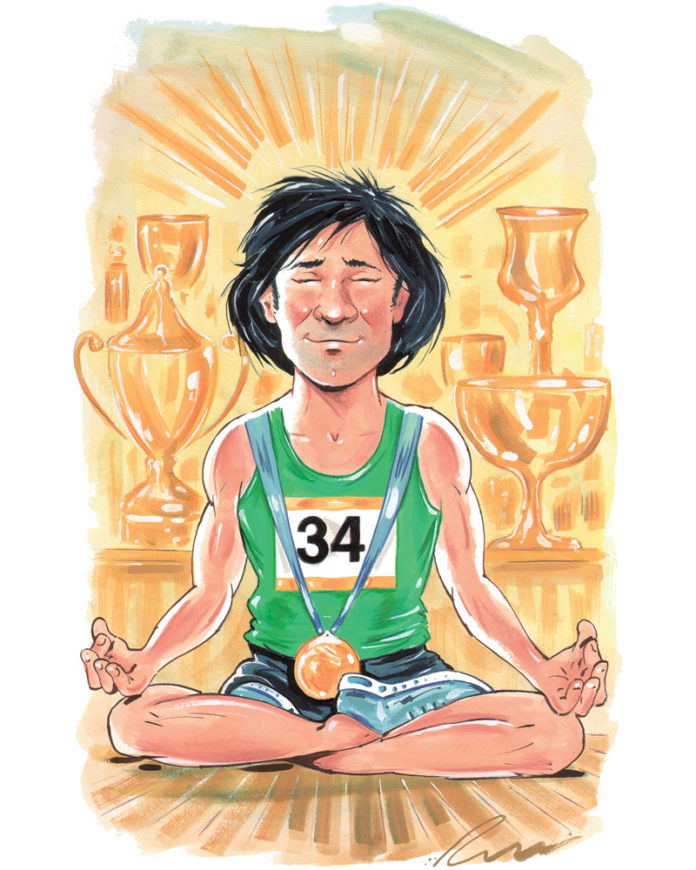
With the stress and demands of daily life, it is often challenging to find time for yourself amidst the chaos. Between work, school, home and balancing personal relationships, life can quickly get stressful. So how do we best manage stress? As relaxing as a spa day may be, it’s not something we can indulge in every time we need to slow down and recharge. Learning how to exercise mindful meditation may be a great solution to managing our fleeting thoughts and worries, which often contribute to elevating our stress levels. In addition, mindfulness can improve our athletic capacities.
Mindfulness and meditation are two practices that intertwine with one another to establish a new way of focusing awareness on the present moment. Meditation is used as a method to set one’s mind into a state of contemplation and reflection; it goes hand in hand with mindfulness, which aims to heighten conscious awareness.
Reaching a state of mindfulness creates an acute awareness of oneself and our present moments. Dr. Evan J. Collins quotes the most likely-used definition (by Jon Kabat Zinn) of mindfulness as “paying attention in a particular way: on purpose, in the present moment, and non-judgmentally.”
The essential notion is to create a zone in which you observe your inner thoughts and bodily sensations. It is believed by some experts that this mental process can benefit athletes and their performances. Mindful meditation allows the athlete a chance to heighten his awareness, thus propelling himself into a greater perception of his surroundings. This doesn’t necessarily mean that athletes must be constantly meditating on the sidelines during the game, but rather can use visualization techniques during meditation which later translate into the game or activity itself.
Mindfulness improves concentration, which has ample benefits for athletes. David Denis, an ND psychotherapist, says that “mindfulness practice helps cultivate some of the same qualities that athletes need,” one of these being focus. At many sporting events are crowds of people in the stands, often cheering loudly; to many athletes this can become a source of negative distraction. In order to eliminate such distraction, Denis says that “one needs to be completely absorbed in the present moment (in order to) allow his talent, experience, and training to shine through unimpeded by distractions.”
This form of relaxation (or slowing of the mind) not only helps with concentration, but increases endurance and helps athletes elevate their performance. Denis explains that “many athletes can learn to connect their experiences of mindfulness meditation to their athletic performance and quickly become motivated to pick it up.”
A mindful approach also allows the athlete to both excel in their performances, and enjoy the experience. In any instance where physical movement is exerted, the elements of enjoyment makes the effort less grueling.
Breathing techniques learned in meditation can be practiced by the athlete to increase endurance and attain peak performance levels while increasing stamina. Once mastered, mindful meditation has the capacity to improve performances during fitness as well as manage and decrease stress, establishing greater fulfillment overall.















